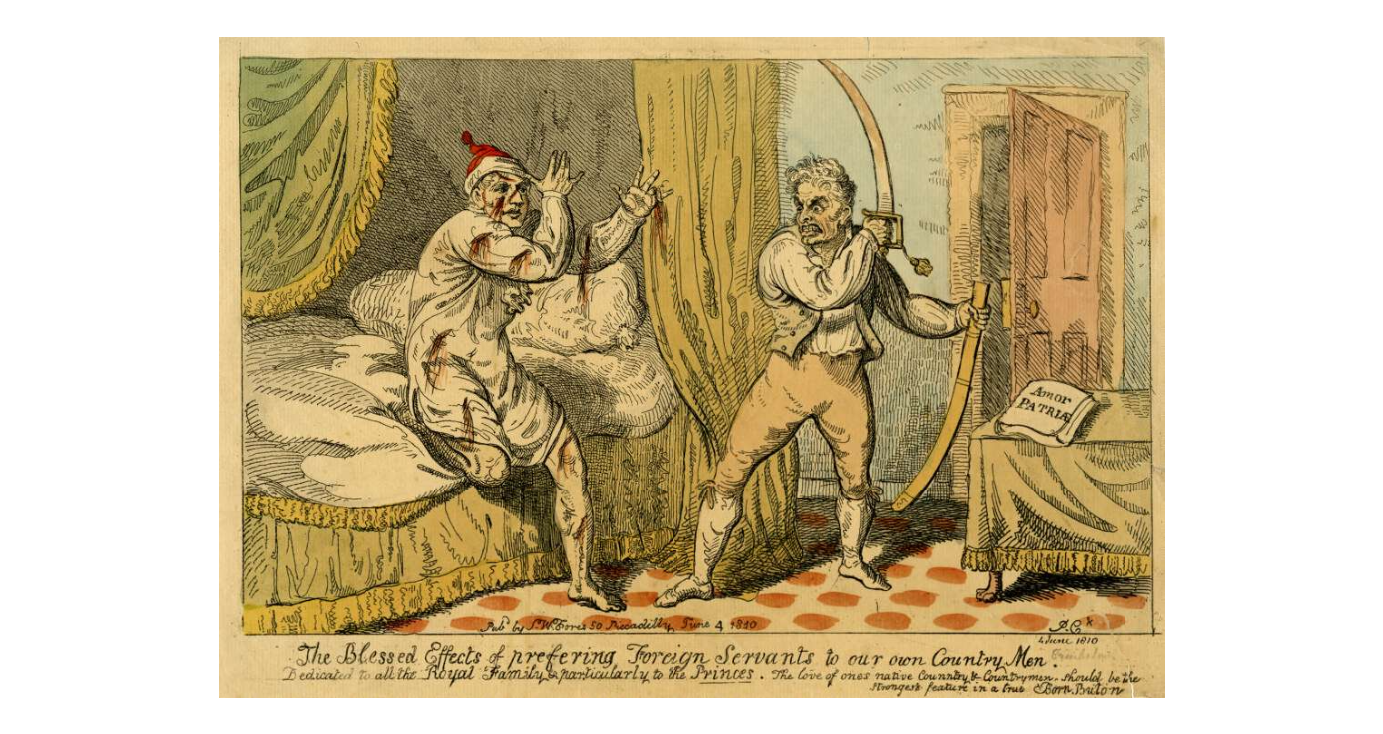
Isaac Cruikshank (1810)
CW: Suicide, murder, assault, violence
A Minute Detail of the Attempt to assassinate … the Duke of Cumberland … in a letter to W. I. Esq. preceded by the depositions before the chief magistrate … and the coroner; with a plan of the Duke’s apartments, etc (1810)
The housekeeper’s account is the most brief, and greatest summary of an outsider’s perspective of the events that crisp May morning in 1810. The infamous Duke of Cumberland was to be embroiled in the worst of all his scandals, the mysterious and violent death of his valet.
The press reported the Duke had murdered his valet, Joseph Sellis and the motives were as salacious as they were married; blackmail, an affair between the Duchess and Sellis, or self-defense (A Life of Scandal: Ernest, Duke of Cumberland – Royal Central). Self-defense seemed to be what the evidence best supported, as the Duke had serious wounds to his head, neck, and thighs. It was thought when the Duke awoke, Sellis fled back to his rooms under the cover of darkness and then committed suicide by slashing his own throat. This would be the verdict when the case went before a jury, but the public would still speculate as to the Bad Duke’s guilt.
The crime caught the interest of the public so much that his apartments at St. James Palace, adorned with blood, were opened for public viewing of the crime scene (A Life of Scandal: Ernest, Duke of Cumberland – Royal Central).
The Duke would continue to live a live of scandal and infamy; a bad marriage, reduction in allowance, and a rumor of siring his younger sister’s illegitimate child. Even that could not extinguish the interest in the attempted assassination of the Duke and subsequent death of the Duke’s valet.
Secret History of the Court of England, from the Accession of George the Third to the Death of George the Fourth (1832)
It would continue decades later, with speculation as to the motives:
Memoirs of the Life of King George the Third (1867)
Rachel Knowles did an excellent job summarizing the case a few years ago, so I recommend giving her version a read: Regency History: The scandalous death of the Duke of Cumberland’s valet










